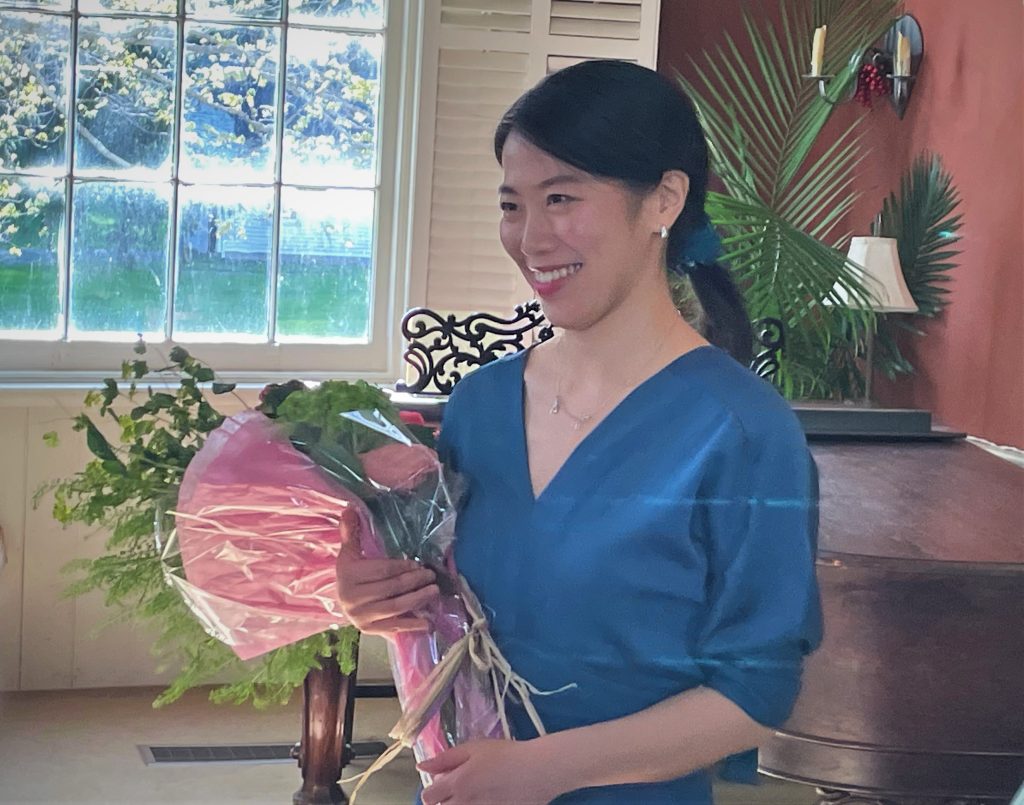
by Kevin T McEneaney
Last Saturday afternoon at Smithfield Church in Amenia, Sophia Zhou, Director of The Stissing Center Chamber Music Program, delivered an amazing one-hour performance on a Steinway Baby Grand Model L from Vincetore’s in Poughkeepsie. She opened her first public performance of four piano works with Piano Sonata in F Major, K. 322 (1783) by W. A. Mozart. Traversing three movements, Sophia expansively dramatized the abrupt key changes amid an abundance of swirling melodies to achieve a vigorous, extroverted astonishment. The crisp clarity of each note struck in the sanctuary, designed by noted architect Nathaniel Lockwood, held the audience spellbound. The opening Allegro interwove at least seven distinct melodies with abrupt, startling shifts. The second movement Adagio featured these melodies in different keys. The concluding Allegro assai offered a brilliant showcase of fireworks that subsequently influenced the concert études of Franz Liszt. The second half of this last movement repeats the first half in different keys. Critics have speculated it was either written for Mozart’s sister, or for his Viennese students, or for his wife Constance. This dazzling masterpiece was played with the seemingly effortless joy that is Mozart’s sprezzatura signature.
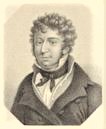
Nocturne No. 5 by John Field (1782-1837), who invented this Romantic genre in the last years of his life when he was not permitted to leave St. Petersburg, offered a gently nostalgic lyricism, as contrast, to the Mozart. Field’s work had long laid in the closet of obscurity until pianist John O’Connor performed the U.S. premiere of these works at Lincoln Center (1989) in celebration of the subsequent Telarc recording release the following year. These dreamy Nocturnes are usually performed by men, although I once heard a woman perform No. 5 at Lincoln Center, yet I was disappointed in its interpretation: a superficial French elegance that lacked depth. Here Sophia Zhou captured the deep, retrospective longing and memory recollections with lingering pathos and joy, evoking the sublime beyond sentimentality clothed in that odd combination of both Irish and Russian idiom.
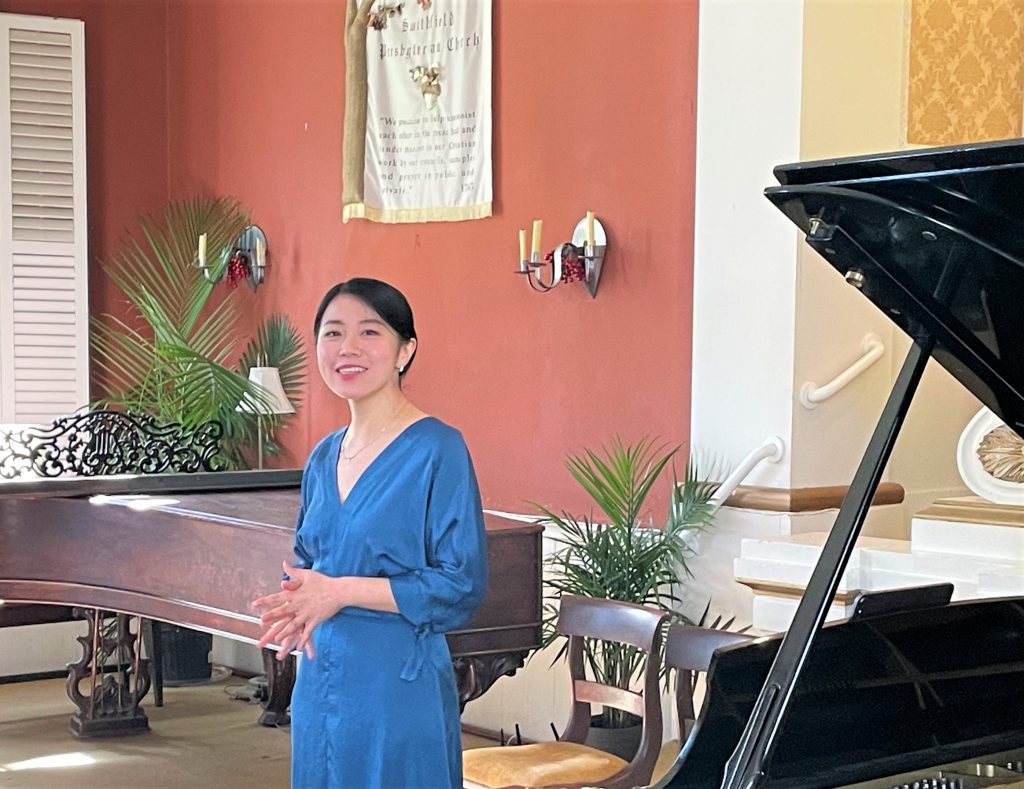
Prelude and Nocturne for Left Hand, op. 9 (1894) by Alexander Scriabin is a famous concert piece around the globe. Scriabin, born with more ambition than dexterous fingers, wracked his hands with perhaps more practice than any other piano pupil in history, damaging his right hand, so he composed this masterwork for his left hand (1894). Here the lyrical precision of Sophia’s fingers revealed the sprightly humor and mischievous delight of the work. Since the Nocturne had been invented in Russia, the genre was well-established. It is debatable whether this Nocturne is Romantic or Modern. Sophia delineated the shooting-star ambience of the work with immaculate phrasing.
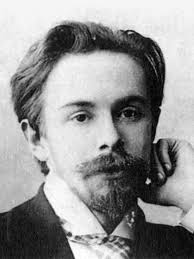
Carnaval, op 9 (1835) by Robert Schumann is his first masterpiece. The thirty-minute work provides an anthology of twenty-two short movements called Sphinxes. The listener is invited to hear eleven salon pieces played by two fictional characters, Eusebius and Florestan. One hears a good version of a work followed by a comic bad version of the work played in a salon environment. The satiric part remains exotically outrageous, especially the satire on Chopin and the popular violinist Paganini. The work were moments when Sophia was obviously laughing as she ran the keys with impish humor, intentionally plunking in awkward rhythm. Full of odd angularities, the work resembles a bizarre cubist painting before the invention of Cubism. This work remains one of Schumann’s most popular works; I have listened to it played in concert twice before and Sophia’s interpretation was the most accurate, nuanced, and, yes, an amusing triumph!
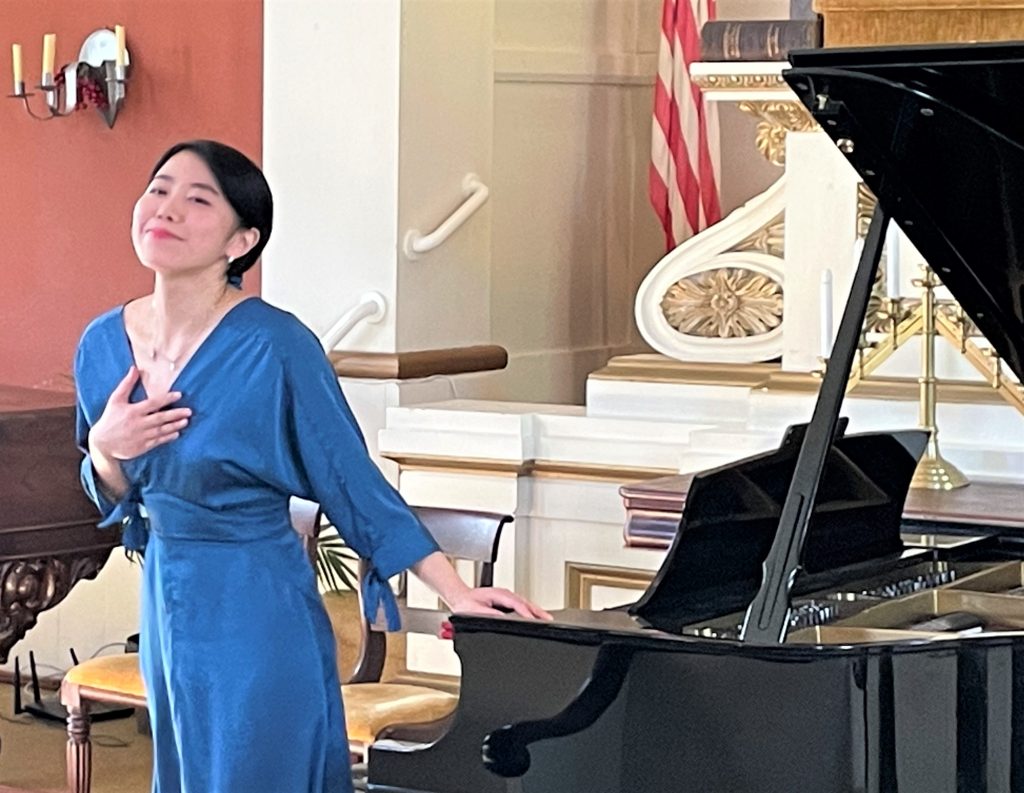
The Smithfield Chamber Orchestra will perform its annual Memorial Weekend Pops Concert in the Church on Saturday, May 27 at 4 pm, with arranger, conductor, and trumpeter Matt Finley.